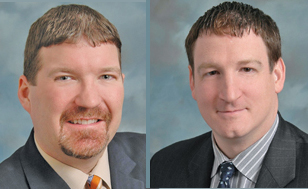The landscape in patent litigation has continued its rapid change with the increase in litigation, based on software patents in particular, initiated by nonpracticing entities, or NPEs. This has caused a flurry of legislative activity seeking to address the issue, and has drawn the interest of the U.S. Supreme Court. Two cases currently before the Supreme Court, and some of the pending legislative proposals designed to combat NPE litigation activity, have the potential to greatly impact the longstanding principles governing fee shifting in the United States. Well-intended legislation and judicial decisions, however, often have unintended consequences, and the same may be the case with potential changes that may occur regarding fee shifting.
Current Law on Fee Shifting
The current law on fee shifting in patent cases, as stated in 35 U.S.C. §285, provides for the award of reasonable attorney fees to the prevailing party, but only in exceptional cases. The Supreme Court recently granted certiorari in two cases that deal with fees shifting to a prevailing party and what standard should be used. In addition, there are three bills before Congress that propose to amend the circumstances under which fees can be awarded to a prevailing party in a patent suit.
Case Law
This content has been archived. It is available through our partners, LexisNexis® and Bloomberg Law.
To view this content, please continue to their sites.
Not a Lexis Subscriber?
Subscribe Now
Not a Bloomberg Law Subscriber?
Subscribe Now
LexisNexis® and Bloomberg Law are third party online distributors of the broad collection of current and archived versions of ALM's legal news publications. LexisNexis® and Bloomberg Law customers are able to access and use ALM's content, including content from the National Law Journal, The American Lawyer, Legaltech News, The New York Law Journal, and Corporate Counsel, as well as other sources of legal information.
For questions call 1-877-256-2472 or contact us at [email protected]



